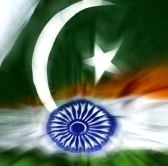Indian probe points to links with Pakistan; warnings ignored
 New Delhi - Investigations have shown those behind Mumbai terrorist attacks that left 188 people dead were based in neighbouring Pakistan, Indian media reported Monday, adding that intelligence warnings about the strikes had been repeatedly ignored.
New Delhi - Investigations have shown those behind Mumbai terrorist attacks that left 188 people dead were based in neighbouring Pakistan, Indian media reported Monday, adding that intelligence warnings about the strikes had been repeatedly ignored.
The findings are supported by the testimony of the only terrorist arrested during the three-day massacre in India's financial hub in which heavily armed men targeted two luxury hotels, a railway station, a hospital and a Jewish centre.
India's Ministry of External Affairs summoned the Pakistani High Commissioner Shahid Malik to lodge a protest related to the attacks, the NDTV network reported.
A ministry official confirmed that a meeting had taken place but details would be given later.
The arrested militant, Ajmal Amir Kasav, 21, who admitted being a member of Pakistan-based Lashkar-e-Toiba militant group, had provided evidence that attacks were planned in Pakistan, Indian investigators told local newspapers.
Images of Kasav, who led the first wave of attacks at Mumbai's main railway station, the Chhatrapati Shivaji Terminus, were captured by surveillance cameras there.
Kasav, who belongs to the Pakistani province of Punjab, told interrogators that he was among the 10 picked for the mission after 24 youths underwent year-long training at a militant camp in Mansera and Muzaffarabad in Pakistan, the Times of India newspaper reported.
The LeT (Army of the Pure) the main militant group operating in India-administered Kashmir, has been suspected of being behind several daring attacks on Indian soil, including a 2001 raid on the Indian parliament.
The LeT has been fighting Indian forces with then aim of creating an Islamic state covering Pakistan and Kashmir and is believed to have close links with Pakistan's spy agency the Inter-Services Intelligence.
Indian officials told local newspapers that Islamabad had not effectively enforced its official ban on the militant outfit.
Islamabad has denied the charge of involvement in the attack, which threaten to jeopardize a bilateral peace-process launched in 2004.
Pakistan President Asif Ali Zardari, in an interview with the CNN-IBN news channel, has urged India against "over-reaction".
Meanwhile, media reports said warnings about the attacks were given by different intelligence agencies, including India's Research and Analysis Wing (RAW), from as early as March this year.
But all of these were ignored by the police, navy and the coast guard.
The English-language Hindustan Times reported that an LeT operative Fahim Ansari, who was arrested in northern India, had disclosed to the police in March that the outfit was planning to attack Mumbai's five-star hotels through the sea-borne route.
Later in August, intelligence agencies had warned the crime branch that the LeT was training between 500 to 600 terrorists for attacks from the sea.
In November, the RAW again issued a warning to the Coast Guard, Navy and Maharashtra Police that the Taj and Oberoi were potential targets, the NDTV news channel reported.
However, Mumbai police rubbished the claims, saying there was no specific input among the "stacks of reports" generally sent by the intelligence agencies, the report said.
The Indian Navy said there was no "actionable intelligence" as there were no specific leads about how the terrorists would strike.
The terrorists, who are believed to have reached Mumbai by a sea route, attacked 10 locations, including a hospital, a railway station, killing 188 people and injuring over
300.
A Jewish centre was also targeted and witnesses said the terrorists were specifically looking for US and British nationals.
The victims included 28 foreigners, who hailed from countries including Israel, Germany, Japan, United States, Canada, Britain, Australia, France, Italy, Singapore and Japan. (dpa)